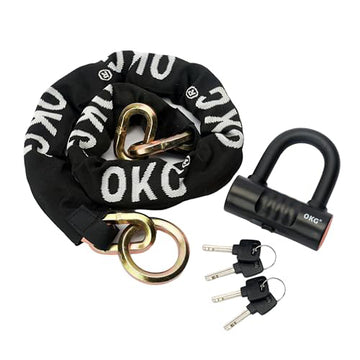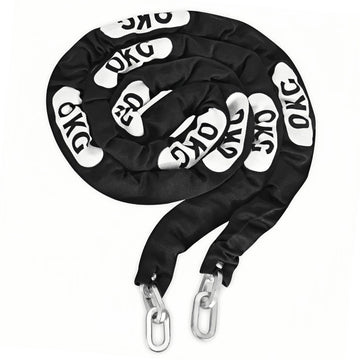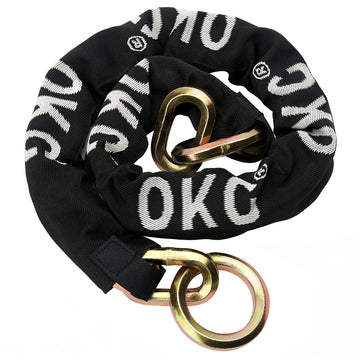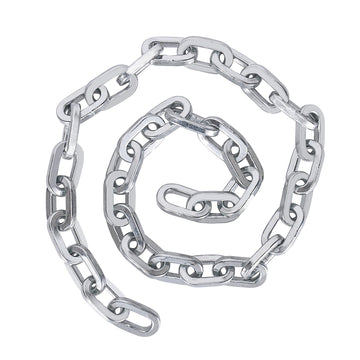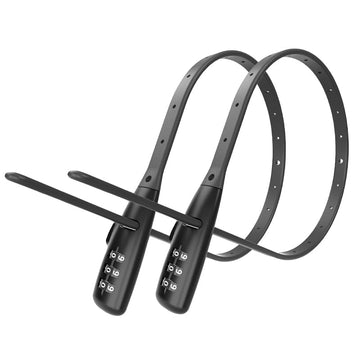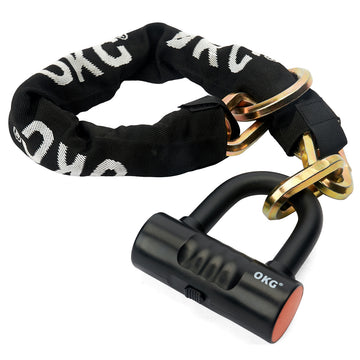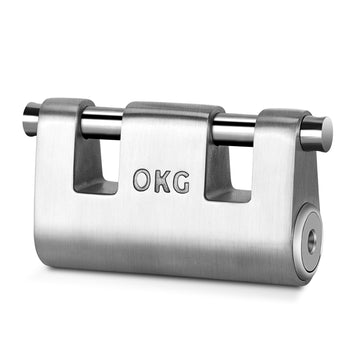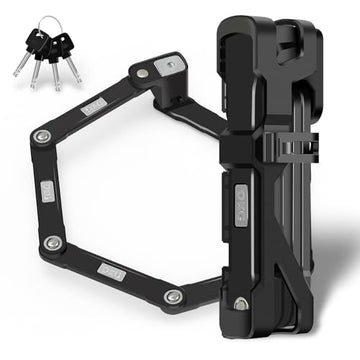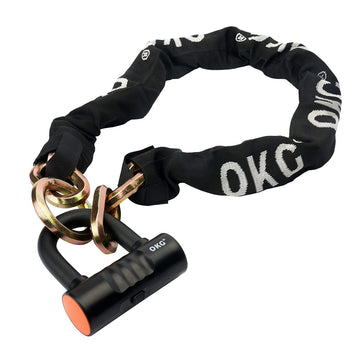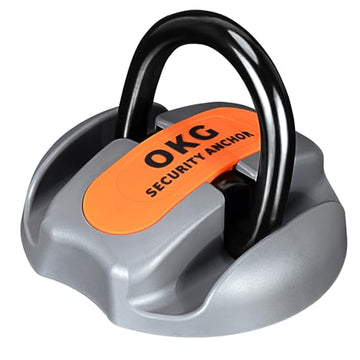
General Maintenance Tips
-
Regular Cleaning:
- Wipe down your lock with a clean, dry cloth after each use to remove dirt, dust, and moisture. This helps prevent the build-up of debris that could potentially interfere with the lock's mechanism.
- For more stubborn dirt or grime, use a mild detergent mixed with water and a soft brush to gently clean the lock. Avoid using harsh chemicals or abrasive cleaners as they can damage the lock's finish.
-
Lubrication:
- Periodically lubricate the lock's moving parts, such as the keyhole, latch, and hinges (if applicable). Use a silicone-based or graphite lubricant, which are less likely to attract dirt and gum up the mechanism compared to oil-based lubricants.
- Apply a small amount of lubricant to a clean cloth and then wipe it onto the relevant parts. Avoid over-lubricating as excess lubricant can attract dirt and cause problems.
-
Inspection:
- Regularly inspect the lock for any signs of wear, damage, or corrosion. Check the chain links (if applicable) for cracks or signs of weakening. Examine the lock body for scratches or dents that could compromise its security.
-
Look for any loose screws or parts and tighten them if necessary. If you notice any significant issues, contact our customer service for further guidance.
Chain Lock Maintenance
-
Chain Care:
- If your lock has a chain, keep it clean and dry. After exposure to wet conditions, dry the chain thoroughly to prevent rust. You can use a clean towel or let it air dry in a well-ventilated area.
- Check the chain for any kinks or twists. If you find any, carefully straighten them out to ensure smooth operation.
-
Rust Prevention:
- Apply a rust inhibitor spray or a light coating of WD-40 (or a similar product) to the chain periodically to prevent rust formation. This is especially important if you live in a humid or coastal area.
- If you notice any signs of rust starting to form, use a wire brush or sandpaper to gently remove the rust and then apply a rust preventive treatment.
Folding Lock Maintenance
-
Folding Mechanism:
- Check the folding mechanism regularly for smooth operation. If it starts to feel stiff or difficult to fold/unfold, apply a small amount of lubricant to the hinges.
- Make sure that the locking pins or latches engage properly when the lock is in the locked position. If they seem loose or misaligned, contact customer service.
-
Body and Finish:
- Protect the lock's body and finish from scratches and dents. Avoid dropping the lock or hitting it against hard surfaces. If the finish starts to fade or chip, you can consider applying a clear protective coating (after consulting with our customer service to ensure compatibility).
U Lock and Padlock Maintenance
-
Keyhole and Lock Cylinder:
- Keep the keyhole clean and free from debris. Use a can of compressed air (if available) to blow out any dirt or lint that may have accumulated inside the keyhole.
- If the key becomes difficult to insert or turn, do not force it. Instead, try cleaning the key with a mild detergent and drying it thoroughly. If the problem persists, contact us as it could indicate an issue with the lock cylinder.
-
Shackle and Body:
- Inspect the shackle for any signs of wear or damage, especially around the locking area. If the shackle becomes bent or damaged, it could affect the lock's security.
- Clean the lock body with a damp cloth and dry it completely. Avoid using solvents or harsh cleaners that could damage the lock's surface.
Storage
-
Proper Placement:
- When not in use, store your lock in a cool, dry place. Avoid leaving it in direct sunlight or in areas with high humidity, as this can accelerate wear and corrosion.
- If possible, store the lock in a protective case or pouch to prevent scratches and damage.
-
Avoiding Pressure:
- Do not stack heavy objects on top of the lock or subject it to excessive pressure, as this could damage the internal components.
By following these maintenance tips, you can help ensure the longevity and optimal performance of your OKG locks, providing you with reliable security for your bicycles and motorcycles. If you have any further questions or concerns about lock maintenance, please feel free to contact our customer service team.
